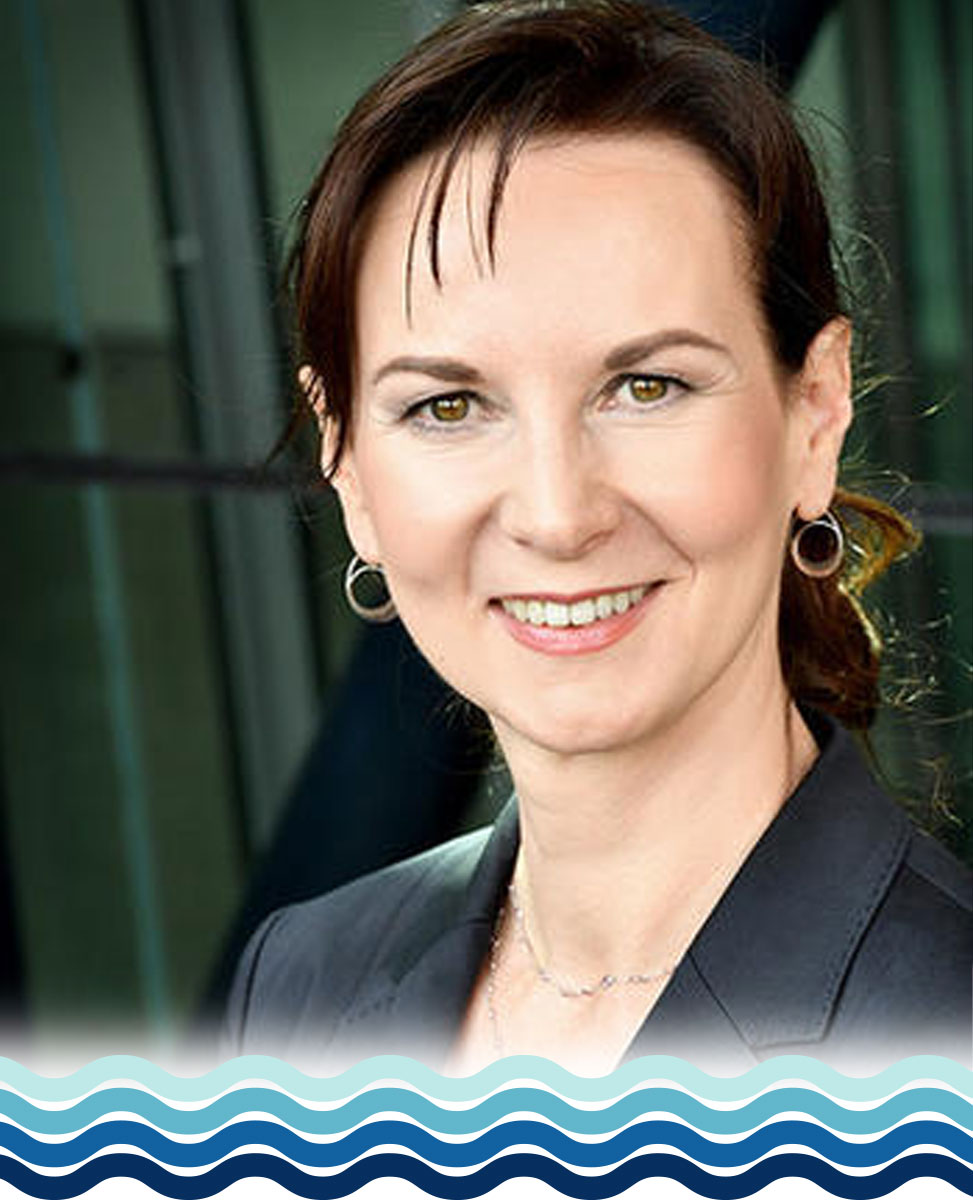Beate Koksch
Professor
Freie Universität Berlin
Talk Information
Peptide Materials
16 June 2025, 04:40pm - 04:55pm, in the Pacific Jewel Ballroom
L18 – Fluoropeptides as Biodegradable Biopolymers

Professor Beate Koksch is a leading figure in peptide chemistry, serving as a Professor of Organic and Natural Product Chemistry at Freie Universität Berlin. Her research bridges organic chemistry, biochemistry, and materials science to develop innovative peptide-based systems with biomedical and technological applications.
Academic Background
Professor Koksch earned her Diploma in Chemistry from Leipzig University in 1991 and completed her Ph.D. in Biochemistry there in 1995. She conducted postdoctoral research at The Scripps Research Institute in La Jolla, California, under the mentorship of Professors M. Reza Ghadiri and Carlos F. Barbas III. In 2000, she began her independent academic career as an Assistant Professor at Leipzig University. She joined Freie Universität Berlin in 2004 as a Professor and was promoted to W3 Professor in 2023.
Research Focus
Professor Koksch's research focuses on peptide and protein engineering, particularly the incorporation of fluorinated amino acids to enhance the pharmacokinetic and physicochemical properties of peptide-based drugs and materials. Her work aims to understand and modulate protein structure and function through the development of small peptide model systems, contributing to advancements in biomedicine, biotechnology, and materials science.
Notable Contributions
Professor Koksch has authored over 130 peer-reviewed publications and holds two patents. She has delivered more than 60 plenary and invited lectures. Her contributions have significantly advanced the field of fluorinated peptide chemistry, offering new insights into protein folding, stability, and function. She is a co-founder and CEO of FluxPharm GmbH, a company focused on developing peptide-based therapeutics.
Awards and Honors
Professor Koksch has received numerous accolades, including the ACS National Award for Creative Work in Fluorine Chemistry in 2021 and the Publication Award from the GDCh Fluorine Chemistry Division in 2017. She is a Fellow of the European Academy of Sciences since 2017 and has been recognized with the Central Teaching Award of Freie Universität Berlin in 2017.
Professional Engagements
Beyond her research, Professor Koksch has played a pivotal role in academic leadership. She served as the Speaker of the Graduate School "Macromolecular Bioscience" from 2012 to 2014 and the DFG Research Training Group "Fluorine as Key Element" from 2012 to 2018. She is also the Speaker of the Center for Supramolecular Interactions, CSI, at Freie Universität Berlin.
Through her interdisciplinary approach and innovative research, Professor Beate Koksch continues to make significant contributions to peptide science and its applications in medicine and materials science.
Fluoropeptides as Biodegradable Biopolymers
Freie Universität Berlin, Institute of Chemistry and Biochemistry, Berlin, Germany
Fluorine as a substituent causes drastic changes in the biophysical properties of organic molecules and polymers. This results in highly appreciated properties of drugs and materials that are ubiquitous in our everyday lives today. However, the unique stability of the C–F bond can be problematic if this leads to poor biodegradability. Combining the special material properties of fluoropolymers with the biocompatibility of peptides could be an attractive solution.
The incorporation of fluorine substituents into otherwise hydrophobic amino acid side chains induces a polarity that no other functionality can generate in this form. This special polarity leads to drastic changes in the biophysical properties of peptides in terms of hydrophobicity, lipophilicity, solubility, as well as folding and proteolytic stability—criteria that are of utmost importance for biomolecular recognition, self-assembly, and thus the properties of peptide-based biomaterials1.
Generally, the combination of fluorine substituents, which lead to the much-described and widely used omniphobic properties in organic polymers, with the water-soluble properties of peptides (depending on their sequence and folding) promises new classes of compounds with extremely interesting properties. Fluoropeptides, which consist exclusively or to a large extent of fluorinated amino acids, offer a wide range of unexplored possibilities in terms of folding, self-assembly, and material properties. We have recently taken the first steps into this uncharted scientific territory2,3.
The lecture will present the first polyfluorinated peptides that consist of more than 50% of fluorinated amino acids. They represent an amphipathic peptide motif combining long stretches of fluorinated amino acids containing one to three fluorine substituents in the side chain of ethyl glycine with a short stretch of positively charged lysine residues that mediate solubility in aqueous medium. The structural and biomaterial properties of this new class of compounds are discussed here. This design is comparable to organic co-block polymers. The application of this class of fluoropeptide conjugates for the encapsulation of hydrophobic drugs and their specific delivery to their cellular targets is also presented. In addition, we are investigating how isolated enzymes and whole microorganisms are able to cleave C–F bonds of fluorinated peptides and amino acids. These results open up new avenues for the development of biomaterials containing fluorine.
1. Berger A.A., Völler J.-S., Budisa N., Koksch B. Acc. Chem. Res. 2017, 50(9), 2093.
2. Chowdhary S., Schmidt R.F., Sahoo A.K., tom Dieck T., Hohmann T., Schade B., Brademann-Jock K., Thünemann A.F., Netz R.R., Gradzielski M., Koksch B. RSC Nanoscale 2022, 14, 10176.
3. Hohmann T., Chowdhary S., Ataka K., Er J., Dreyhsig G.H., Heberle J., Koksch B. Chem. Eur. J. 2023, e202203860.
4. Khan M.F., Chowdhary S., Koksch B., Murphy C.D. Environ. Sci. Technol. 2023, 57, 9762.

